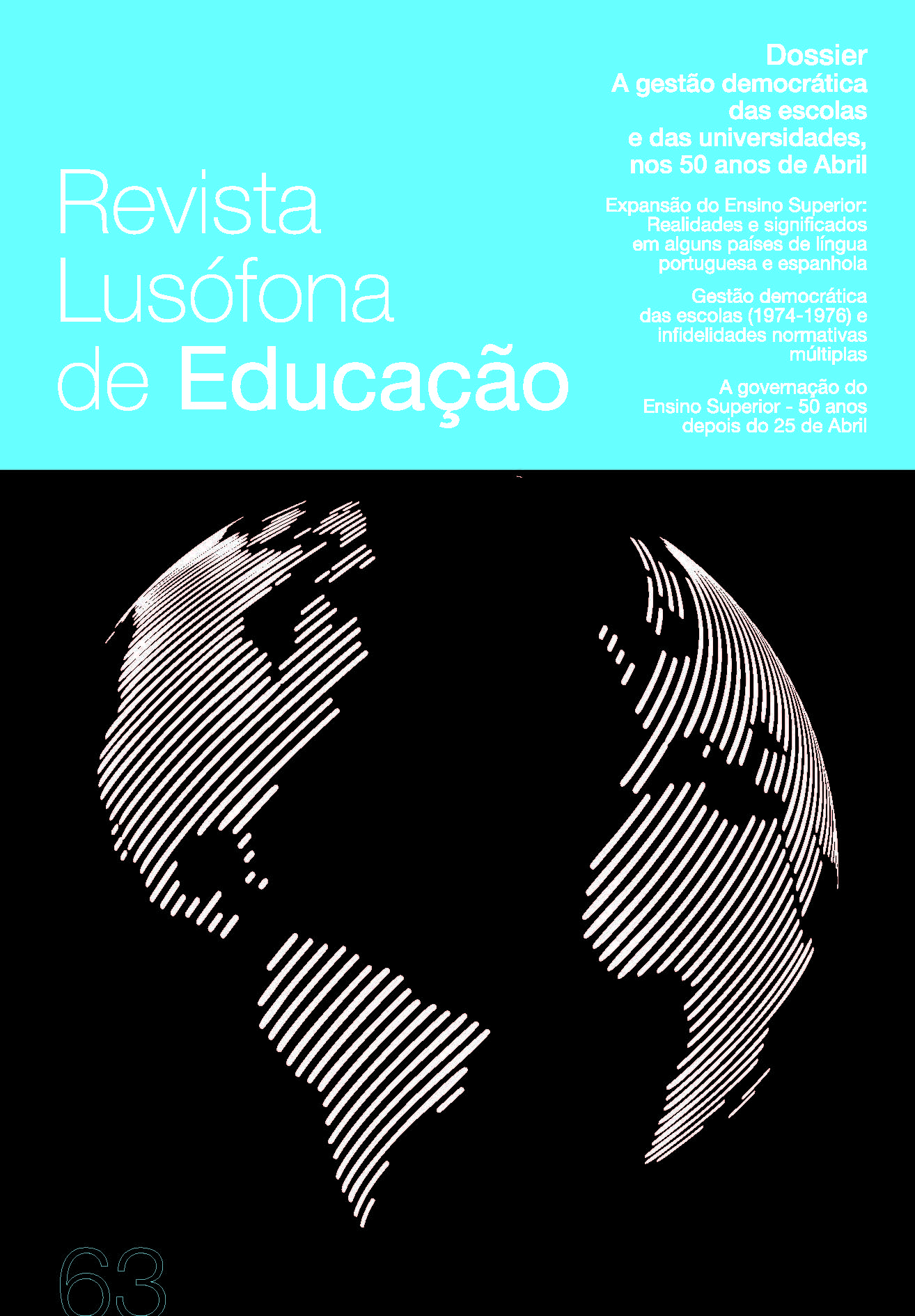The governance of Higher Education - 50 years after the 25th of April
Abstract
Taking the last 50 years as a temporal reference, this article seeks to characterize, in different moments
of the development of Portuguese higher education, how political mandates promote and articulate governance and management models. From the analysis of the participatory governance and management model during the years of the April Revolution to the model conveyed by the current legal framework, based on the autonomy and performance of institutions, and on quality assessment, it is clear that a path has been followed resulting in the limitation and decrease in the representativeness of the constituencies of academia, the under-representation of faculties/schools/departments in central decision-making bodies, and the strengthening of managerial functions of rectors and directors of organic units. Losses of collegiality in favour of centralization of decision-making processes and the predominance of managerial logics over academic ones have brought about a wide reconfiguration of governance and management
of institutions with losses of democracy in their contexts that must be considered.
Keywords: Higher education governance and management; autonomy of higher education institutions; political
mandate
Downloads
-
Authors retain copyright of their work, without any payment, and grant the journal the right of first publication. The work is simultaneously licensed under a Creative Commons Attribution 4.0 International License (CC BY 4.0), which allows others to share (copy and redistribute the material in any medium or format) and adapt (remix, transform, and build upon the material for any purpose, even commercially), provided that proper credit is given to the author(s) and the initial publication in RLE is acknowledged.
-
Authors are permitted to enter into separate, additional contractual arrangements for the non-exclusive distribution of the version of the work published in this journal (e.g., depositing it in an institutional repository or publishing it as a book chapter), provided that authorship and initial publication in RLE are acknowledged.
-
Authors are allowed and encouraged to post and disseminate their work online (e.g., in institutional repositories or on their personal websites), as this can increase the visibility and citation of the published work (see The Open Access Effect).








